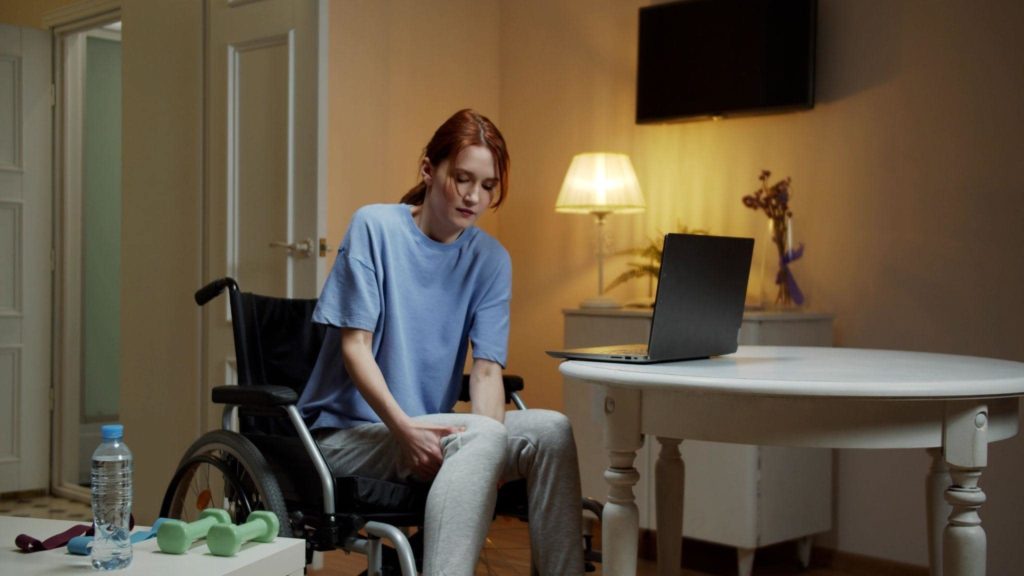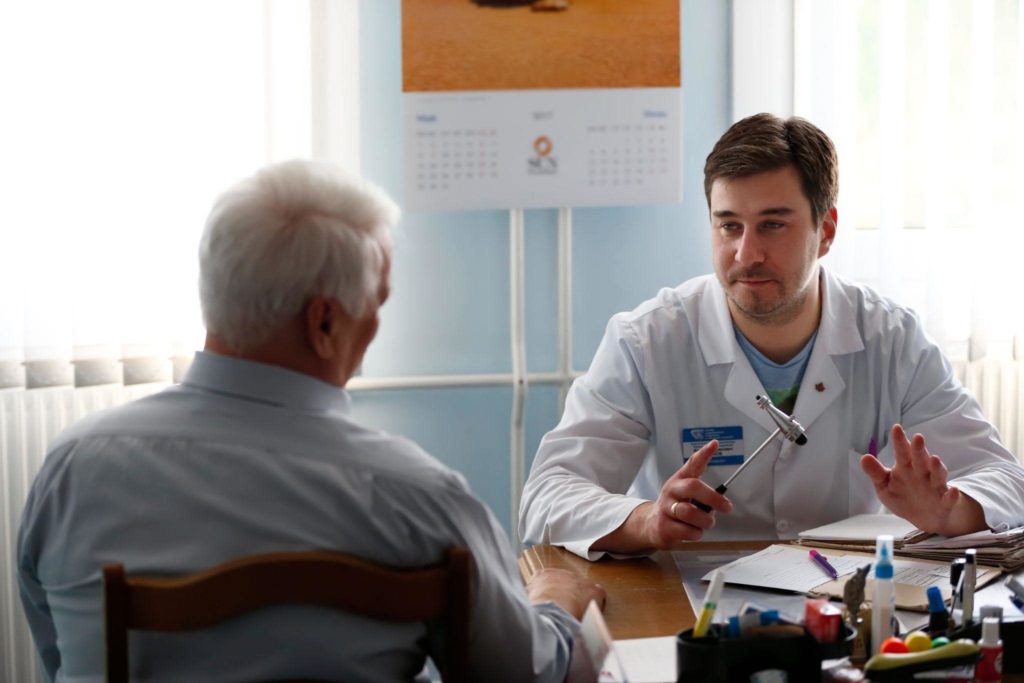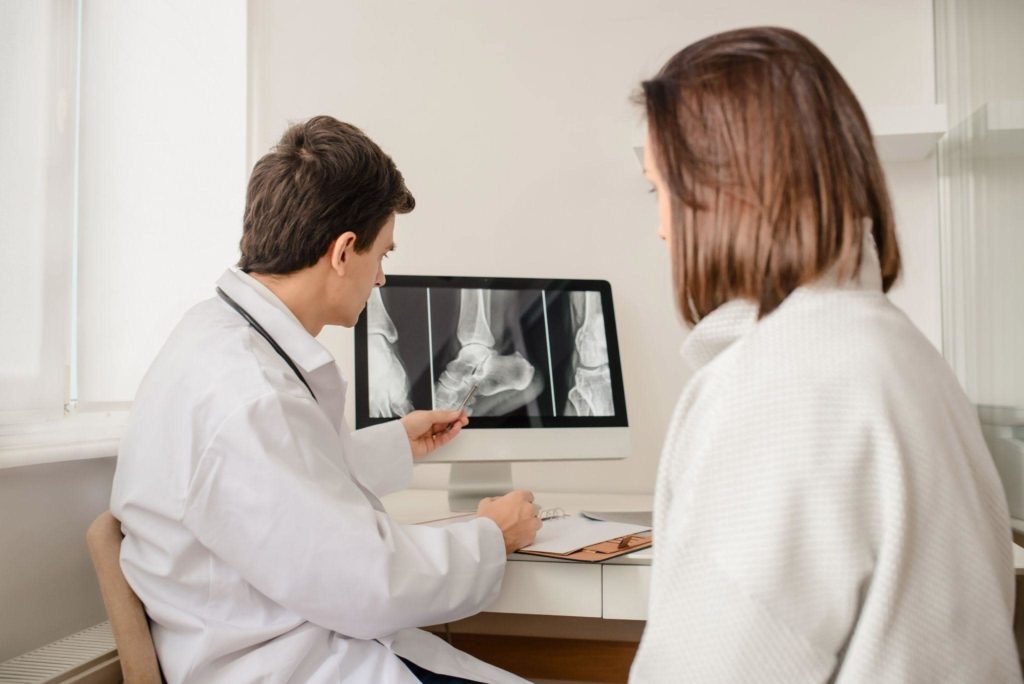Life with CRPS (complex regional pain syndrome) can be incredibly frustrating. Not only can it leave a victim unable to move, but it can also lead to feelings of hopelessness and despair.
We have prosecuted many CRPS cases and have received record-setting jury verdicts for CRPS. If you’ve been diagnosed with CRPS, call the Chicago personal injury attorneys from Horwitz, Horwitz & Associates. Please schedule a free consultation by contacting us online or calling (800) 985-1819.
What is CRPS? Why do doctors call it RSD?
If you’re suffering from pain, burning, tingling, discoloration, and/or chronic swelling – usually in one of your arms or legs – then you may have CRPS.
CRPS is classified as a chronic neuro-inflammatory condition. Even though it’s considered to be rare, it’s estimated that as many as 200,000 people in the U.S. develop CRPS each year. CRPS can result from major or minor trauma.
Typically, nerves try to help the body heal after trauma, but with CRPS, nerves continuously send pain signals to the brain. These signals are so intense that many victims report suffering from excruciating pain on a nearly constant basis.
If you’ve done any research into CRPS, you’ve probably seen the condition labeled as reflex sympathetic dystrophy (RSD). RSD is basically just an older name for CRPS Type I (CRPS-I). Experts in pain medicine changed the name in 1994.
The vast majority of victims (about 90%) have CRPS Type I, which occurs after a trauma that doesn’t directly affect the nerves. CRPS Type II (CRPS-II), formerly known as causalgia, develops after an injury that leads to nerve damage.
Common symptoms of CRPS
The most common symptoms of CRPS include constant “pins and needles” or burning sensations. Some victims report feeling like the affected limb is being squeezed. CRPS pain can come suddenly and seemingly without cause, and it may start in one part of the limb and spread through the entire limb.
Some CRPS sufferers have said they’ve felt the same symptoms in the same location, but on the opposite limb–this is a phenomenon referred to as “mirror pain.” Other symptoms include the following:
Increased sensitivity to touch
A CRPS victim can feel severe pain even after the affected limb is only lightly touched. They can also experience pain for an extended period of time after something as mild as a pinprick.
Skin changes
The condition can sometimes lead to changes in skin color, temperature, swelling, and texture. A person’s affected limb will often feel significantly cooler or warmer than the opposite limb, and the skin may turn red, gray, or even blue. Victims may also notice a change in skin texture. For some people, their skin might become thicker than normal, while others might become thin and develop a shine.
Stiffness
People with CRPS will often find that their ligaments and tendons aren’t as flexible as they should be. This can sometimes result in the pinching or rubbing of nerves, creating even more discomfort.
Bone abnormalities
Excessive bone growth can occur after a fracture or after the formation of a cyst, which might irritate the surrounding nerves. Not only can this cause CRPS to develop, it can also prolong and worsen issues in people who already have the condition.
Muscle problems
CRPS can also affect the nerves that help make it possible for the body’s muscles to move. Most people with CRPS say they have a hard time moving the affected limb. Others experience jerking, tremors or other involuntary muscle movement. While these problems will typically resolve themselves without treatment, there are instances where surgery will be needed in order to lengthen tendons and restore flexibility.
Not every person with CRPS will experience all of the above symptoms, and any experienced symptoms may vary in severity and duration. Some might only experience symptoms for a short time (acute), while others have to deal with them for months or even years (chronic).
Complications and long-term effects
When someone has CRPS for an extended period of time, they may develop complications that eventually affect the entire body, not just one limb. Here are just a few of them.
Cognition changes
CRPS can result in significant changes in cognition. It can have grave effects on memory and can result in difficulty controlling emotions and behavior.
Extreme fatigue
CRPS triggers an inflammatory response as it progresses. The body is fighting very hard in an effort to heal, and that can result in fatigue and weakness.
Cardiac problems and chest pain
Heart issues can develop due to a reduced pulse rate. Although chest pain can be a complication of CRPS, it’s not an indication of a heart attack. Instead, it occurs because a nerve in the chest has become irritated. This type of chest pain typically worsens when lifting the arms, because that motion increases irritation of the nerve.
Pain is often disproportionate to the type of injury
There are a lot of reasons CRPS is an incredibly frustrating condition, one of the biggest frustrations is that pain is more intense than it should be. Things that shouldn’t cause any kind of discomfort whatsoever, such as lightly brushing up against a door, or being touched by someone else, can be excruciating.
Worse than the pain is that many medical professionals are unfamiliar with CRPS and might suggest that the pain is psychosomatic, or it’s all in their head, as if they’re making it up. This only increases the feelings of anxiety and dread that the patient is already experiencing.
Causes of CRPS
Although the exact cause of CRPS remains unknown, many potential causes of CRPS have been linked to some sort of negligence, such as an error committed by a medical professional, or trauma due to an at-fault driver causing a car accident. The victim of such negligence may be able to take legal action as a result.
Traumatic injury
There are several different types of injuries that can lead to CRPS, the most common being a broken bone. When a bone is splintered, fragments can cause severe nerve damage. A very tight cast could irritate nerves to the point where CRPS develops. A fairly minor muscle strain or joint sprain could rupture tissues or stretch nerves.
Proving that someone else caused the accident that led to your traumatic injury also takes the skill of a seasoned personal injury lawyer. Your personal injury attorney will have to produce strong evidence and will have to be able to persuade an insurance company (or a jury if the case goes to trial) that you are entitled to every penny you’re requesting.
Diagnosing and treating CRPS
Experts believe that the earlier someone is diagnosed with CRPS, the better their chances are of achieving full recovery. However, it can be extremely difficult to make a diagnosis, sometimes even taking years for a medical professional to determine the cause of the pain.
Due to its rarity, physicians will typically try to rule out other conditions before making a CRPS diagnosis. They’ll perform thorough examinations, take extensive tests, and also look at a patient’s medical history.
Treating CRPS
Despite a lack of complete information of the condition, physicians believe that some treatments could eventually help a patient recover completely. Options include the following:
- Neurosurgery or orthopedic surgery
- Occupational therapy
- Physical therapy
- Spinal cord stimulation
- Pain management therapy
CRPS is often misdiagnosed or not treated promptly
Although there are several forms of treatment that are believed to lead to recovery, unfortunately, there’s still no cure for CRPS, nor is there specific testing to diagnose the disorder. As a result, it’s very difficult for patients to get the treatment they need.
Don’t accept a doctor’s explanation that you’re only experiencing such debilitating pain due to a psychological cause or reason. You know your body, and you know this isn’t due to your imagination.
How our CRPS lawyer can help
No one should have to deal with the horrible consequences of CRPS – especially someone who dealt with this condition due to someone else’s negligence. Doctors can obviously help with the physical consequences, but an experienced personal injury attorney can help with the financial consequences.
A Chicago personal injury lawyer from Horwitz, Horwitz & Associates will work to secure compensation on your behalf, money that can cover all of the expenses you’ve incurred.
Compensation you may be able to recover
When someone is harmed due to negligence there are two main types of compensation they may be able to recover – economic and non-economic damages.
Economic damages
Economic damages are tangible. They include medical bills, property damage, lost wages, prescriptions and many others.
Non-economic damages
Non-economic damages, on the other hand, are more subjective. Examples include pain and suffering, emotional and mental trauma, and others.
Punitive damages
While rare, there are some instances where a victim of negligence may be able to obtain punitive damages.
As the name implies, these are meant to punish the defendant. A person who chooses to drive while intoxicated, for instance, and causes an accident that results in a severe injury, could face punitive damages. The amount awarded will typically be significantly higher.
Our Chicago CRPS lawyers are ready to help
CRPS can sometimes lead to a lifetime of debilitation that requires intensive medical care. This, of course, is incredibly expensive. If someone else’s negligence has led to your CRPS diagnosis, please contact a Horwitz, Horwitz & Associates attorney as soon as you can.
Our firm has an extensive track record of success, and we’re ready to put our skills and knowledge to work for you.
When you contact us for a free review of your case, we’ll listen carefully to all of the details. If you choose us to represent you, we’ll conduct a thorough investigation into what caused you to develop CRPS. Our attorneys will work diligently to uncover the evidence it takes to make your case as strong as possible.
We invite you to get in touch with us as soon as you can to learn more about how we may be able to help. Contact us at (800) 985-1819 to get in touch, or you can use our online form.















